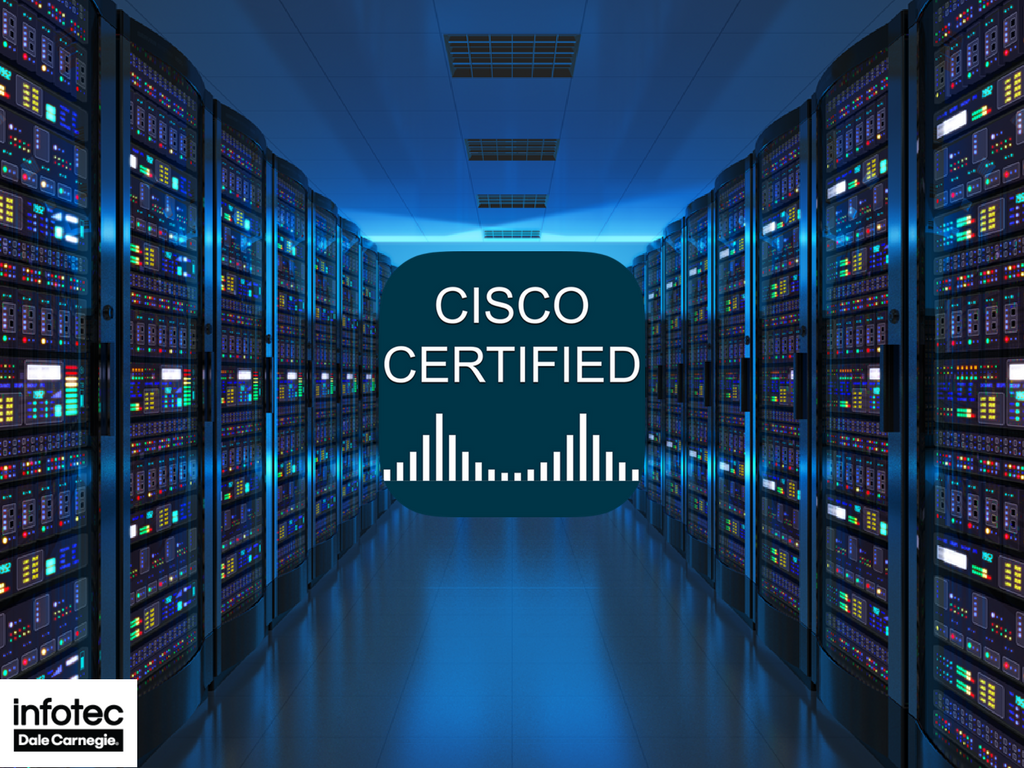Cisco Certifications for Beginners
It's hard to picture a world in the realm of computer networks that doesn't include Cisco Systems certifications. It's one of the biggest names in network computing and in certification of IT professionals. Its own networking academy trains one million students per year to fill eight million vacant networking jobs.
You might be wondering why you, as an employer, should get your IT staff Cisco certified. Here are some benefits of having a Cisco certification for IT professionals who work for your company. There are various pathways to certification, so let's discuss which one is right for you and your workers.
Why Cisco Certify Your IT Staff?
Formal certification separates those individuals who have taught themselves how to get by in Cisco and those with the professional training and passion to study and work hard in a learning environment. Get all your IT staff Cisco certified and they will all speak the same language, work better as a team and strive for excellence for its own sake. Put simply, certified staff outperform non-certified staff in job-critical tasks
From a more practical point of view, there are other reasons to put your IT staff through Cisco certification school:
- Protect IT infrastructure
- Reduce human error
- Cover knowledge necessary to run, maintain, and troubleshoot a network system
- Create trust
- Increase expertise
Pathways to Certification
The levels of Cisco network certification are summarized below:
- CCENT - Cisco Certified Entry Network Technician
- CCNA - Cisco Certified Network Associate
- CCNP - Cisco Certified Network Professional
- CCIE - Cisco Certified International Expert
- CCAr - Cisco Certified Architect
If you work through all of the possible permutations of the Cisco Certification Job Matrix, you discover three distinct entry-level pathways. Whether a given pathway starts with CCENT or CCNA, depends on your area of interest, of which there are four options:
- Networking, network design, and security
- Voice and collaboration solutions
- Data center and storage networking
- Service Provider
Some of these areas, like networking, have up to four subcategories. Some topics begin with CCENT at entry level and progress to more advanced exams via the CCNA certification at the associate level. You see this mainly in the networking, voice, and service provider areas. In addition to 'vanilla' CCNA Cisco offers specialized CCNAs in Security, Wireless, and Voice.
Others bypass the CCNA and advance from CCENT to professional and expert levels. This is limited to the design subgroup of the networking area of interest.
The third pathway is to leap straight in at the Associate level with the CCNA certification. This is how the wireless networking, data center, and service provider people do it (apart from service provider operations, which follows the CCENT/CCNA route).
It is not enough to be CCNA certified. You cannot expect to get your CCNA and then go to a data center and deploy a new site for a customer. Certified Cisco trainers sometimes recommend students start with CCNA, then get their CCNA Security, CCNA Wireless, or CCNA Voice, instead of moving on to CCNP and then CCIE. This is because security, voice, wireless, and data center subjects, although important, are not covered in either CCNA or even CCNP.
Supporting Your IT Staff Through the Certification Process
Apart from financing their course and exam fees and offering verbal encouragement, the best form of support you can provide to your IT staff who are working towards their Cisco certifications is a Cisco network lab and hands-on lab time. Ring-fence a few hours of dedicated staff development into their working week, or set them up with an experienced mentor and send them out on actual jobs.
Sourcing Cisco Certification
If you are an IT employer and you are interested in learning more about Cisco certifying your IT staff, there are plenty of options for training and improvement. Infotec Training offers hands-on focused certification classes to help your employees learn everything they can and pass the rest the first time. For more information on this, or any other IT program, connect with Infotec today.
For more information about Infotec or any of our programs click here: http://www.infotectraining.com/ or https://ops.infotecpro.com/course_schedule/course_schedule.cfm.




